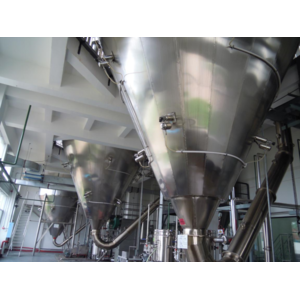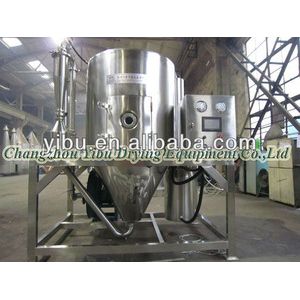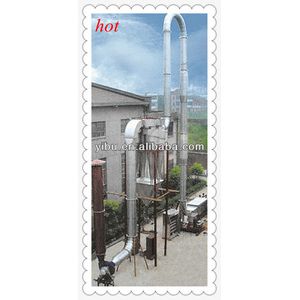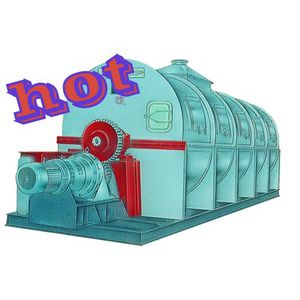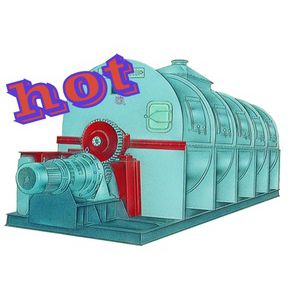Citric acid Spray Dryer with mature technology could protect more protein and active ingredient inside.
Descriptions
Spray drying is the technology most widely used in the liquid technology shaping and in the drying industry. The drying technology is most suitable for producing solid powder or particle products from liquid materials, such as: solution, emulsion, suspension and pumpable paste states. For this reason, when the particle size and distribution of the final products, residual water contents, volume density and the particle shape must meet the precise standard, spray drying is one of the most desired technologies.
Principle
After been filtered and heated the air enters into the air distributor on the top of the dryer. The hot air enters into the drying room in the spiral form uniformly. Passing through the high-speed centrifugal sprayer on the top of the tower, the material liquid will rotate and be sprayed into the extremely fine mist liquid beads. Through very short time of contacting the heat air, the materials can be dried into the final products. The final products will be discharged continuously from the bottom of the drying tower and from the cyclones. The waste gas will be discharged from blower.
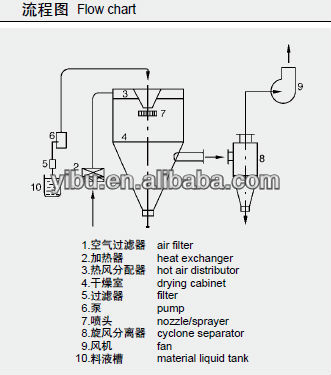
Features
1.The drying speed is high when the material liquid is atomized, the surface area of the material will increase greatly. In the hot-air flow, 95%-98% of water can be evaporated at a moment. The time of completing the drying is only several seconds. This is especially suitable for drying the heat sensitive materials.
2.Its final products own the good uniformity, flow ability & solubility. And the final products are high in purity and good in quality.
3.The production procedures are simple and the operation and control are easy. The liquid with moisture contents of 40-60% (for special materials, the contents might be up to 90%.)can be dried into the powder or particle products once a time. After the drying process, there is no need for smashing and sorting, so as to reduce the operation procedures in the production and to enhance the product purity. The product particle diameters, looseness and water contents can be adjusted through changeing the operation condition within a certain range. It is very convenient to carry out control and management.
Applications
1.Chemical Industry:Sodium fluoride (potassium), alkaline dyestuff and pigment, dyestuff intermediate, compound fertilizer, formic silicic acid, catalyst, sulphuric acid agent, amino acid, white carbon and so on.
2. Plastics and resin: AB, ABS emulsion, uric acid resin, phenolic aldehyde resin, urea -formaldehyde resin, formaldehyde resin, polythene, poly-chloroprene and etc.
3. Food Industry:: Fatty milk powder, protein, cocoa milk powder, substitute milk powder, egg white (yolk), oats,chicken juice, coffee, instant dissolvable tea, seasoning meat, protein, soybean, peanut protein, hydrolysate, corn syrup, corn starch, glucose, pectin, malt sugar, sorbic acid potassium and etc.
4. Ceramic: aluminium oxide, ceramic tile material, magnesium oxide, talcum and so on.
Fluidized Granulating and Atomizing Dryer
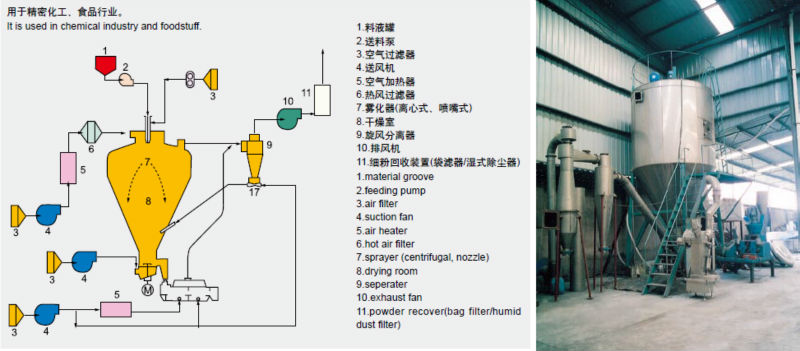
Ordering instruction
1. Liquid name and property: solid contents (or water contents), viscosity, surface tension and PH value.
2. Dry powder density, residual water contents allowed, particle size, and maximum temperature allowed.
3. Output, daily shift time.
4. Energy that can be supplied: steam pressure, electricity properly, fuel of coal, oil and natural gas.
5. Control requirement: whether or not the inlet and outlet temperatures should be controlled.
6. Powder-collecting requirement: whether it's necessary to use cloth bag filter and the requirement of the environment of the exhausted gas.
7.Other special requirements.
Overrall dimension
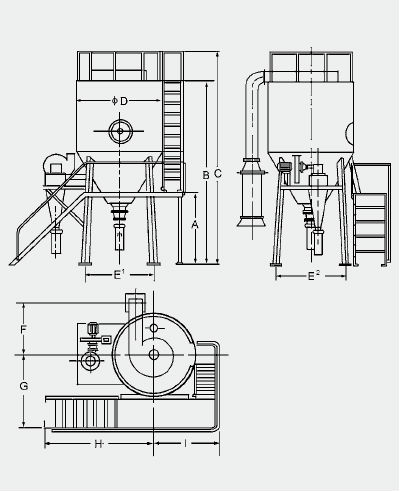

Technical Parameter
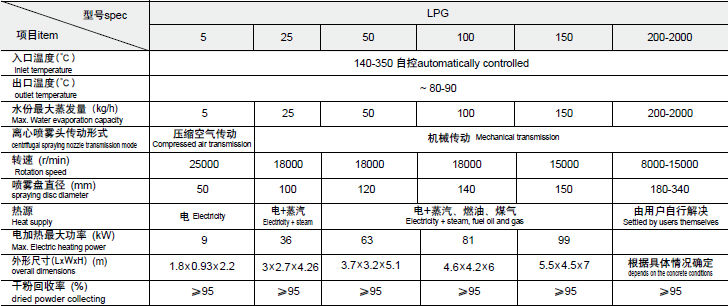
Note: for water evaporation capacity, material property, the inlet and outlet temperatures, please refer the following diagram for reference.
Equipment Picture
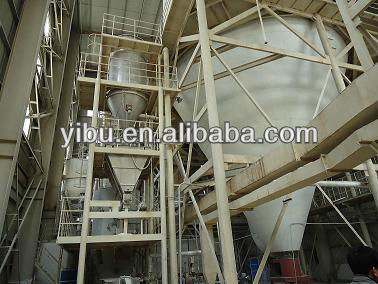
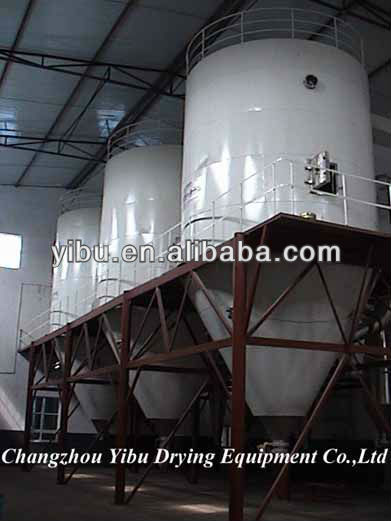
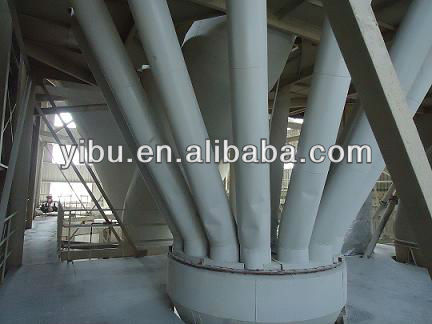
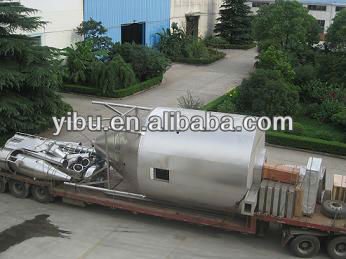
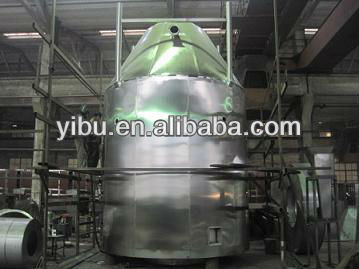
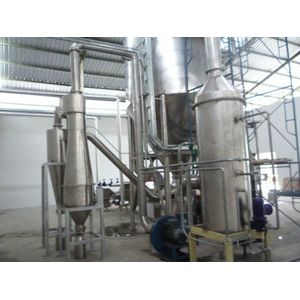
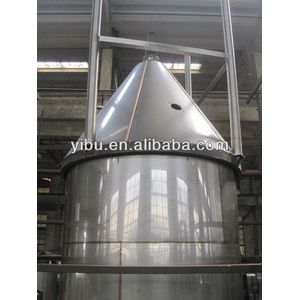
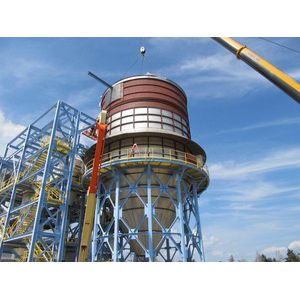
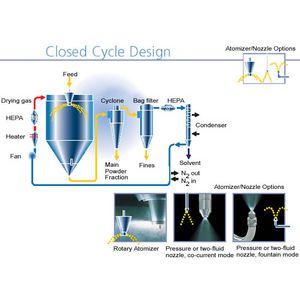
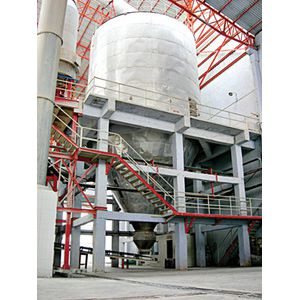
 China
China